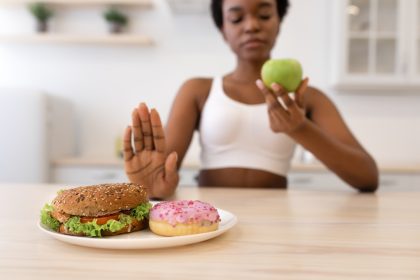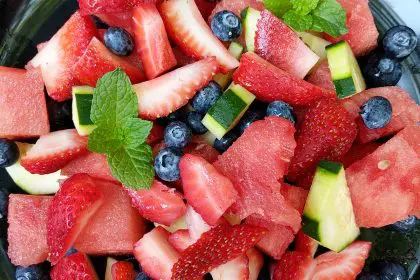The connection between what we eat and how we feel has never been clearer, especially when it comes to anxiety. While many people focus on meditation and exercise to manage their stress levels, experts are now highlighting how specific foods can play a crucial role in reducing anxiety symptoms naturally.
The science behind food and anxiety
Our brain requires specific nutrients to produce neurotransmitters that regulate mood and stress response. Research shows that certain foods contain these essential compounds in abundance, potentially offering a natural way to complement traditional anxiety management techniques.
Nature’s anxiety fighters: 11 foods that can help you feel more relaxed
- Avocados – These creamy fruits do more than make perfect toast toppings. Rich in B vitamins, including folate and B6, avocados help produce serotonin, the feel-good chemical that helps regulate mood. One medium avocado provides about 20% of your daily B6 needs, making it an excellent choice for anxiety management.
- Wild-caught salmon – The omega-3 fatty acids found in salmon work directly to reduce cortisol, the body’s primary stress hormone. Studies indicate that people who consume omega-3-rich fish regularly show lower anxiety levels during stressful situations. Two servings of salmon per week can provide the recommended amount of these essential fatty acids.
- Fresh blueberries – These small but mighty berries pack a powerful punch against anxiety. Their high antioxidant content protects brain cells from stress-related damage. Research suggests consuming a cup of blueberries daily can improve mood within just two weeks.
- Farm-fresh eggs – The humble egg yolk contains more than just protein. It’s a rich source of vitamin D, which many anxiety sufferers lack. Studies show that people with adequate vitamin D levels experience fewer anxiety symptoms. One egg provides about 10% of your daily vitamin D needs.
- Dark leafy greens – Spinach and kale aren’t just trendy superfoods. Their high calcium and magnesium content helps calm nervous system activity. A daily serving of these greens can provide up to 20% of your calcium needs and significant amounts of anxiety-fighting magnesium.
- Raw cashews – These versatile nuts contain zinc, a mineral often depleted during periods of high anxiety. Just a quarter-cup serving provides nearly 15% of your daily zinc requirements, helping to maintain emotional balance.
- Pumpkin seeds – Don’t wait until Halloween to enjoy these seeds. Their high magnesium content makes them natural anxiety fighters. A handful of pumpkin seeds can provide up to 37% of your daily magnesium needs.
- Fresh oranges – Beyond fighting colds, vitamin C in oranges plays a crucial role in anxiety management. Research shows that vitamin C helps reduce the physical and psychological effects of stress. One medium orange provides 100% of your daily vitamin C needs.
- Fresh oysters – While not an everyday food for most people, oysters are anxiety-fighting powerhouses. Their high zinc content helps regulate the body’s stress response. Just six oysters provide more than 100% of your daily zinc requirements.
- Organic turkey – The famous post-Thanksgiving dinner relaxation isn’t just from eating too much. Turkey contains tryptophan, which helps produce serotonin. A 3-ounce serving provides about 123% of your daily B3 needs, another nutrient crucial for mood regulation.
- Fresh chamomile – While technically an herb, chamomile deserves special mention. Its natural compounds have been shown to bind to the same brain receptors as anti-anxiety medications, though much more gently. Regular consumption of chamomile tea may reduce anxiety symptoms over time.
Anxiety-triggering foods to watch out for
Just as some foods can help reduce anxiety, others may increase it. Understanding which foods to limit can be just as important as knowing which to embrace.
Hidden anxiety triggers in your diet
Artificial sweeteners found in diet sodas and “sugar-free” products can interfere with the body’s stress response system. Research indicates that regular consumption of these substances may increase anxiety symptoms in sensitive individuals.
High-fat processed foods, particularly those rich in saturated fats, may contribute to increased anxiety levels by promoting inflammation in the body. This inflammation can affect brain function and mood regulation.
Refined carbohydrates, such as white bread and pastries, cause rapid blood sugar fluctuations that can trigger anxiety symptoms. These foods provide quick energy but often lead to crashes that may worsen anxiety.
Smart sipping: beverages that impact anxiety
Drinks that help
Pure water stands as the foundation of anxiety management through proper hydration. Even mild dehydration can trigger anxiety symptoms or make existing ones worse. Experts recommend drinking at least eight 8-ounce glasses daily.
Green tea provides L-theanine, an amino acid that promotes relaxation without causing drowsiness. Unlike coffee, it offers a gentler form of caffeine that’s less likely to trigger anxiety.
100% fruit juices, particularly those rich in vitamin C, can help combat stress when consumed in moderation. However, their natural sugar content means they should be consumed mindfully.
Drinks to limit
Caffeinated beverages, especially when consumed in large quantities or late in the day, can trigger or worsen anxiety symptoms. This includes coffee, energy drinks, and some sodas.
Alcohol, while often used to relax, can disrupt sleep patterns and alter brain chemistry in ways that may increase anxiety, particularly during withdrawal periods.
Creating an anxiety-reducing meal plan
Morning: Start with a bowl of blueberries topped with pumpkin seeds and served with scrambled eggs. This combination provides vitamin D, antioxidants, and magnesium.
Lunch: A salad of dark leafy greens topped with avocado and grilled turkey offers a perfect blend of B vitamins, magnesium, and tryptophan.
Dinner: Grilled salmon with roasted vegetables provides omega-3 fatty acids and additional nutrients that support mood regulation.
Snacks: Raw cashews, orange slices, or chamomile tea can help maintain steady energy levels throughout the day while providing anxiety-fighting nutrients.
Long-term benefits of an anxiety-conscious diet
Adopting an anxiety-reducing diet isn’t just about immediate relief. Research suggests that consistent consumption of these beneficial foods can lead to:
Improved stress resilience Better sleep quality More stable mood patterns Enhanced cognitive function Reduced inflammation throughout the body
While food alone cannot cure anxiety, incorporating these dietary changes alongside other healthy lifestyle practices can significantly impact how we handle stress and anxiety in our daily lives.
Remember to introduce these changes gradually and pay attention to how different foods affect your anxiety levels. Everyone’s body responds differently to dietary changes, so what works for one person may need adjustment for another.
Making sustainable changes
Start by incorporating one or two anxiety-reducing foods into your daily routine rather than overhauling your entire diet at once. Keep a food diary to track how different foods affect your mood and anxiety levels.
Consider consulting with a healthcare provider or registered dietitian who can help create a personalized plan that takes into account your specific needs and any existing health conditions.
The journey to managing anxiety through diet is a marathon, not a sprint. Focus on progress over perfection, and remember that small, consistent changes often lead to the most sustainable results.
















